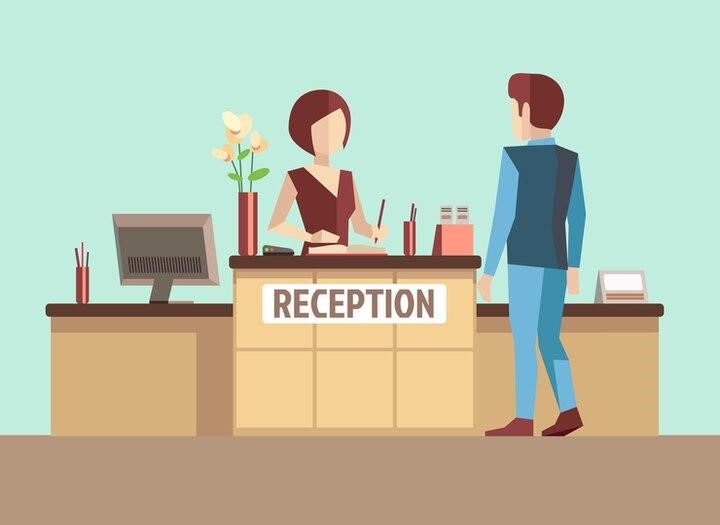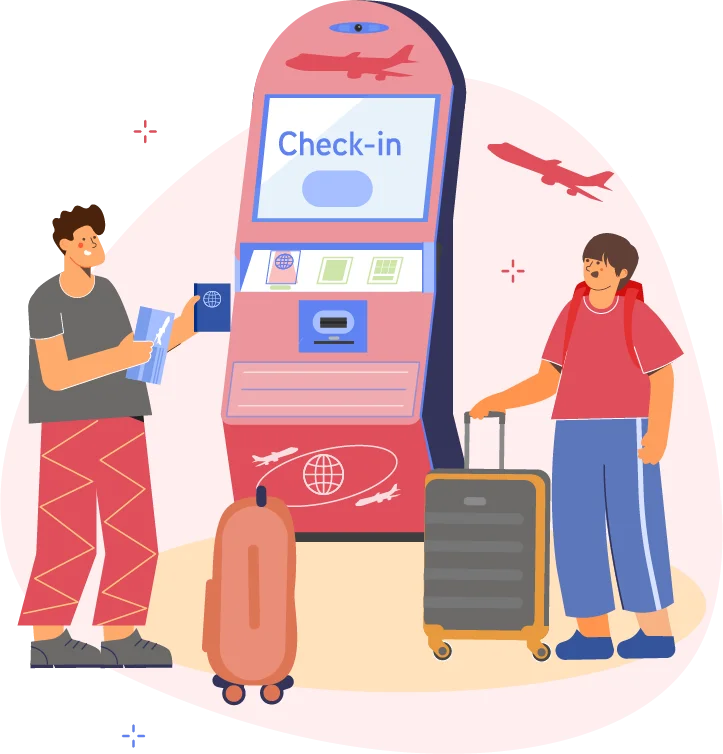
The hotel’s front desk is the first impression that hotel guests experience when they enter a hotel.
If they have not pre-booked, it’s at this time that they decide whether to book a stay in the hotel or not.
As the saying goes, the first impression is the best, and guests easily judge the hotel based on their first experience at the front office.
Streamlining front desk operations can elevate the guest experience, improve efficiency, and boost revenue.
Leveraging technology can transform these operations, leading to increased efficiency, reduced operational costs, and improved guest experiences.
Here’s how hotels can use technology to optimize their front desk operations effectively.
1. Implement a Comprehensive Property Management System (PMS)
What is a PMS?
Property Management System is software that handles the hotel’s reservations systems and also the administrative tasks.
It acts as the backbone of hotel operations, integrating various functions into a single platform.
PMS also ensures that the front office staff have access to real-time access to critical information, improving operational efficiency and reducing the likelihood of errors.
Why It Matters
it provides valuable insights and analytics that help hotel managers make data-driven decisions to optimize their operations and increase profitability.
Overall, a well-implemented PMS is essential for improving the efficiency of hotel operations and delivering a seamless and satisfying experience for guests.
“According to a study by Hotel Technology Next Generation (HTNG), hotels using advanced PMS systems see up to a 15% reduction in operational costs due to increased automation and efficiency.”
Source: Internet
Example
For instance, a luxurious hotel has integrated a state-of-the-art PMS that allows for real-time booking updates, guest preferences tracking, and streamlined check-in/check-out processes. This integration has significantly reduced check-in times and improved guest satisfaction scores.
2. Utilize Self-Service Kiosks

The check-in process often takes up a lot of time and can lead to long guest queues.
This can be frustrating for guests and may even lead them to choose another hotel. One solution to this problem is to implement self-service check-in and check-out kiosks.
These kiosks can help speed up the process and improve guest satisfaction by streamlining check-in and check-out.
Why It Works
Self-service kiosks allow guests to check in, check out, and even make payments without direct interaction with front desk staff.
This not only speeds up the process but also frees up staff to focus on more personalized guest interactions.
“According to research by Deloitte, self-service kiosks can reduce check-in times by up to 50%, leading to shorter wait times and a smoother overall experience for guests.”
Source: Internet
Example
Hilton Hotels have implemented self-service kiosks across their properties, allowing guests to check in and out seamlessly. This has resulted in higher guest satisfaction ratings and more efficient front desk operations.
3. Integrate a Guest Feedback Management System
Guest feedback is valuable to hotels as it provides a direct way to address any issues that guests may have.
Guest feedback management software offers an innovative alternative to the traditional method of collecting feedback in the front office using paper and pen.
This approach makes the feedback collection process more engaging, enhances the guest experience in providing feedback, and results in an increased number of responses.
Why it Matters
A Guest Feedback Management System helps hotels collect, analyze, and respond to guest feedback efficiently.
By leveraging this data, hotels can make informed decisions to improve their services.
“Research from Cornell University indicates that hotels with robust feedback management systems can see a 10% increase in positive reviews and a 15% reduction in guest complaints.”
Source: Internet
Example
The Ritz-Carlton uses an advanced feedback management system to track and analyze guest feedback in real time. This allows them to address issues promptly and continuously improve their service quality based on guest insights.
4. Automate Routine Tasks with Artificial Intelligence (AI)

Artificial Intelligence (AI) is currently the most popular field across all sectors, and the hospitality industry is no exception.
Utilizing this rapidly advancing technology to automate routine tasks, thereby reducing the need for manual intervention, is one of the key uses of artificial intelligence.
In the hospitality industry, artificial intelligence has automated routine tasks and has greatly facilitated the work of front office staff, making it easier and more organized.
Why it Matters
Artificial Intelligence (AI) can automate routine tasks such as answering frequently asked questions, handling reservations, and managing room assignments.
This reduces the workload on front desk staff and improves operational efficiency.
“According to a report by McKinsey & Company, AI-powered automation can reduce operational costs by up to 30% and improve service delivery by handling routine tasks efficiently.”
Source: Internet
Example
A hotel has implemented AI-powered chatbots that handle guest inquiries and reservations around the clock. This automation has led to faster response times and allowed staff to focus on more complex tasks.
5. Use Complaint and Request Management Software
In hospitality, guest complaints and requests are inevitable. So it is important to have robust complaint and request management software in place to handle the continuous unavoidable requests and complaints.
Handling complaints manually adds an extra burden on the front office staff, in addition to their daily tasks.
Implementing dedicated software like Geedesk to manage guest complaints and requests can streamline the complaint management process and ensure that no complaint goes unresolved.
Why it Matters
Complaint and request management software is essential for addressing guest issues promptly and effectively.
This technology helps hotels track, manage, and resolve guest complaints and requests in real-time, improving overall guest satisfaction and operational efficiency.
“According to a report by Software Advice, hotels using complaint and request management systems see a 25% reduction in the time taken to resolve guest issues.”
Source: Internet
Example
Geedesk, a complaint and request management software, allows hotels to streamline their guest complaint-handling processes by providing a centralized platform for managing requests and complaints. This system helps hotels track complaints from initiation to resolution, ensuring timely and effective responses. Hotels using Gedesk have reported a significant decrease in guest complaints and an increase in guest satisfaction scores.
Conclusion
In today’s fast-paced world, where guests’ expectations know no bounds, optimizing front desk operations with technology is the need of the hour.
The front desk is the first place where guests interact with the hotel, and streamlining and optimizing its operations is essential to create a good first impression.
The front desk is also the direct contact point for guests during their stay, and having a slow manual process will only make the process look slow, time-consuming, and less reliable.
A streamlined front desk operation with high reliability on technology creates an impact on the hotel’s advancement, increasing the chances of repeat customers.
As the industry continues to evolve, embracing these technological advancements will position your hotel for success, ensuring that you remain competitive in an ever-demanding market.
After all, a streamlined front office isn’t just a reflection of efficiency—it’s the key to unlocking guest loyalty and long-term profitability.